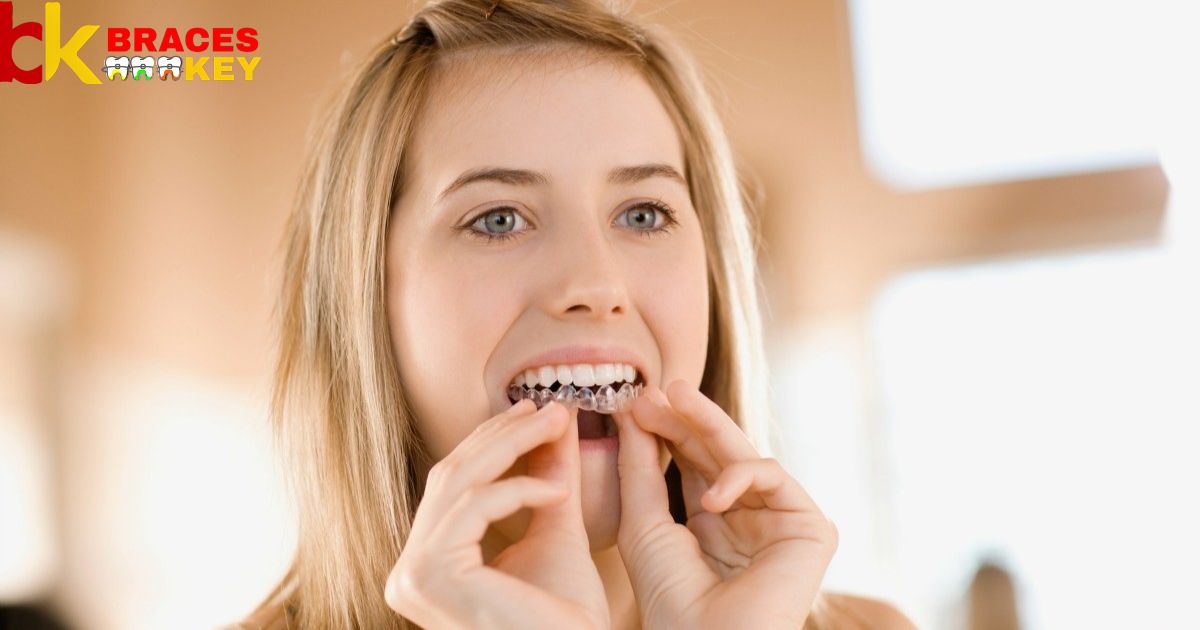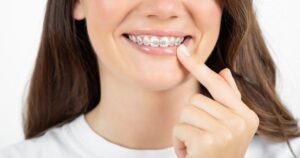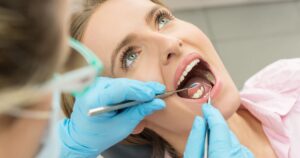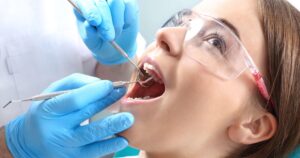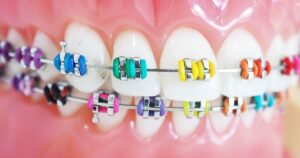Getting braces when you have crowns is possible, but it requires careful planning by an orthodontist and consultation with your dentist. Braces can be attached to teeth with crowns, but the crowns might need adjustments or replacements to ensure they can withstand the orthodontic treatment. Your dental and orthodontic professionals will work together.
Ever wondered if you can get braces if you have crowns. The synergy between orthodontics and restorative dentistry offers a unique challenge. Let’s delve into the options and considerations for orthodontic treatment if you have crowns.
Braces can be used if you have crowns, but there are some considerations. Crowns don’t move like natural teeth, so orthodontic treatment may need extra planning. Your orthodontist will work closely with your dentist to ensure a successful treatment plan. It’s essential to discuss your specific situation with them to determine the best approach.
The compatibility of braces with crowns
The compatibility of braces with crowns is a topic that depends on individual dental circumstances. In many cases, having crowns doesn’t necessarily rule out getting braces. It’s essential to consult with an experienced orthodontist who can assess your unique situation. They will help determine whether braces can be applied effectively without compromising the integrity of your crowns.
In cases where braces are compatible with crowns and you want to eat fruit roll-ups, ensuring a strong foundation is key. The orthodontist will work to create a treatment plan that considers the presence of crowns, ensuring the best possible outcome for your orthodontic journey. Regular check-ups, proper maintenance, and good oral hygiene are essential to maintain the health of both your crowns
Assessing Individual Dental Conditions
Assessing individual dental conditions is a critical step in crafting personalized oral health plans. Dentists evaluate factors like oral hygiene, existing dental work, and overall health to determine the most effective treatment approach. This tailored approach ensures optimal dental care and addresses specific needs.
Orthodontic Consultation and Evaluation
An orthodontic consultation is the first step in achieving a healthier, more aligned smile. During this evaluation, a qualified orthodontist will assess your dental condition, discuss your treatment options, and create a personalized plan to address your specific needs.
Maintaining Oral Health during Treatment
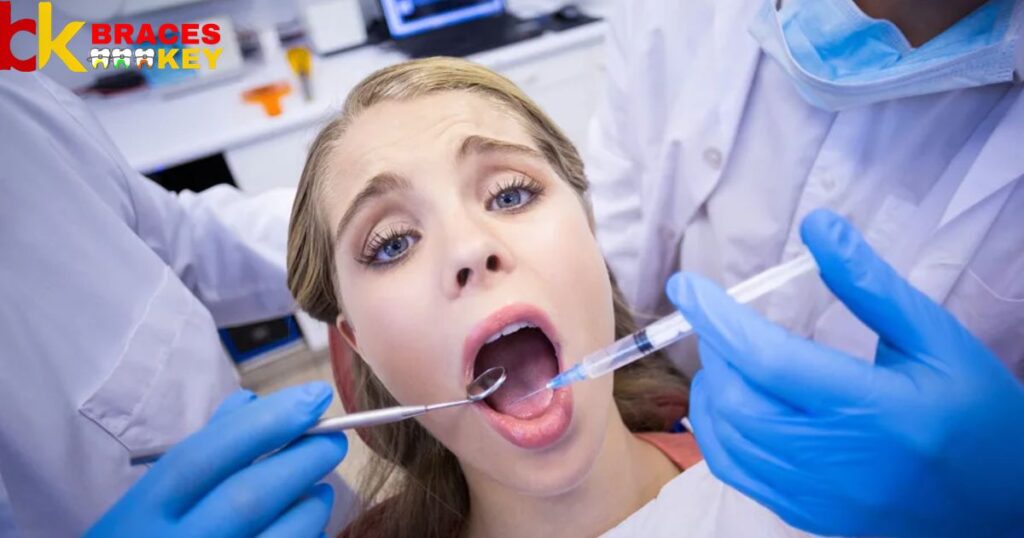
Maintaining oral health during treatment, whether it’s with braces or other dental procedures, is essential. Regular brushing, flossing, and dental check-ups help prevent issues like cavities and gum disease, ensuring a healthy and successful outcome for your treatment.
Consult an orthodontist to assess your specific case and discuss options
When considering orthodontic treatment, it’s imperative to consult an experienced orthodontist. They will meticulously assess your unique dental situation, taking into account factors such as existing crowns, alignment issues, and overall oral health. Through this personalized evaluation, the orthodontist can offer tailored recommendations and discuss available treatment options to help you achieve a beautiful and healthy smile.
An orthodontist’s expertise goes beyond conventional orthodontic practices. They have the knowledge and experience to navigate the complexities of cases involving crowns or other dental work. By seeking their professional guidance, you ensure that your orthodontic journey is both effective and safe, giving you the best chance to attain the smile you’ve always desired while preserving the integrity of your dental crowns.
Braces can often be applied if crowns are securely in place
When it comes to orthodontic treatment, the feasibility of braces with crowns largely depends on the stability and condition of those crowns. In many cases, braces can indeed be applied if the crowns are securely in place. The primary concern is to ensure that the crowns are firmly attached to the teeth and won’t be compromised during the orthodontic process.
To determine whether braces can be used with crowns, it’s crucial to seek professional guidance. Your orthodontist will carefully evaluate your individual dental situation and discuss the best approach. They’ll consider factors like the type of crowns you have, their condition, and how they are bonded to your teeth to make an informed decision about whether braces are a viable option.
Ensure a strong foundation for orthodontic treatment
A strong foundation for orthodontic treatment is paramount to achieving a successful outcome. This foundation begins with a thorough assessment by an orthodontist who will evaluate your dental health and any pre-existing dental work, such as crowns or fillings. Ensuring that any necessary restorations are in place and functioning optimally helps create a stable environment for braces or other orthodontic appliances to work effectively. This initial step is critical to the long-term health and alignment of your teeth.
To assess existing dental work, maintaining good oral hygiene is equally vital to establish a robust foundation for orthodontic treatment. Clean teeth and gums are more responsive to orthodontic adjustments, reducing the risk of complications like tooth decay or gum disease. Regular dental check-ups and diligent home care, including brushing and flossing, are essential components of this foundation.
Proper planning and examination are crucial
In the realm of orthodontic care, the significance of proper planning and thorough examination cannot be overstated. Before embarking on any orthodontic treatment, it’s imperative to lay a solid foundation. This entails a comprehensive assessment of the patient’s dental condition, including the presence of any crowns, bridges, or other dental work.
When it comes to orthodontics, the adage measure twice, cut once holds true. Proper planning and a meticulous examination process are the cornerstones of successful orthodontic treatments. They allow orthodontists to take into account all the nuances of a patient’s dental structure, ensuring that any existing crowns or dental work are accommodated effectively.
Adaptable treatment strategies are available
Adaptable treatment strategies offer a flexible approach to addressing various health concerns. In the field of medicine and healthcare, personalized plans can be tailored to meet the specific needs of each patient. These strategies take into account individual differences, preferences, and the evolving nature of medical science. By adapting treatment approaches healthcare.
In the world of business and management, adaptable treatment strategies are vital for staying competitive and responsive to changing market dynamics. Companies that can adjust their business models, marketing tactics, and product offerings based on real-time data and customer feedback are more likely to thrive in today’s dynamic landscape.
Maintaining oral hygiene is vital for success

Maintaining impeccable oral hygiene is an indispensable component of overall dental well-being. It plays a pivotal role in ensuring the success of orthodontic treatments such as braces. By diligently brushing, flossing, and using mouthwash, individuals with braces can prevent plaque buildup and tooth decay. Consistent oral hygiene not only safeguards the health of teeth.
Success in orthodontic treatments, especially when dealing with braces, is inextricably linked to the commitment to oral hygiene. The presence of braces can make cleaning more challenging, but with the right tools and techniques, it’s entirely achievable. Regular dental check-ups and professional cleanings further enhance the chances of a successful orthodontic outcome.
Seek professional guidance for personalized solutions
When it comes to complex dental issues, seeking professional guidance for personalized solutions is paramount. Dentists and orthodontists possess the expertise and knowledge needed to assess individual cases, ensuring that the recommended treatments are tailored to the unique needs of each patient.
In the world of dentistry, a one-size-fits-all approach rarely suffices. Seeking professional guidance for personalized solutions, such as get braces if you have crowns, is akin to receiving a bespoke treatment plan, crafted to address the specific challenges and goals of each patient. Whether it’s orthodontic work, restorative procedures, or overall dental care.
FAQ’s
Can I get braces if I have dental crowns?
In many cases, yes. Your orthodontist will assess your specific situation to determine the best approach.
Do crowns interfere with orthodontic treatment?
Crowns can be considered when planning your braces, but individual factors play a role.
How can I ensure the compatibility of braces with my crowns?
Consult with your orthodontist and dentist for a comprehensive evaluation and tailored treatment plan.
Are there alternative orthodontic options for individuals with crowns?
Yes, alternatives like Invisalign may be considered, depending on your specific dental needs and goals.
Conclusion
The possibility of getting braces if you have crowns depends on individual factors. Consulting with dental and orthodontic professionals is crucial to assess compatibility and explore alternative solutions, ensuring that your orthodontic journey is personalized and effective. Whether crowns pose any challenges or not, achieving a beautiful, aligned smile is attainable with the right guidance and expertise.
